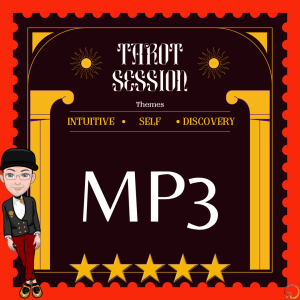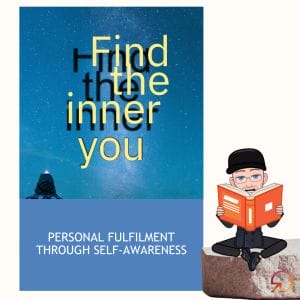 In today’s world with all the polarity, chaos and the myriad of perspectives and opinions thrown at us from every quarter, it’s more important than ever to apply critical thinking skills when making important decisions about our lives and interpreting the events of the world we live in.
In today’s world with all the polarity, chaos and the myriad of perspectives and opinions thrown at us from every quarter, it’s more important than ever to apply critical thinking skills when making important decisions about our lives and interpreting the events of the world we live in.
Critical thinking is more than a skill that employers demand. It’s a key ingredient for leading a meaningful life. So find deeper meaning and fulfilment through developing your critical thinking skills.
While critical thinking can be difficult to describe, it basically comes down to thinking about thinking. You begin to understand the true essence of life lessons instead of only remembering facts. You also gain more knowledge and wisdom, because creating a context helps you retain more of what you learn.
You can teach yourself to be a better critical thinker with this brief guide.
Basics of Critical Thinking
1. Find evidence. Research! Do the facts support your conclusions? Think about all the different and even conflicting points of view. Check out different sources from your own personal experience to any relevant scientific studies, plus any other sources you can think of. Considering lots of valid evidence will help you develop an informed opinion!
2. Test your own logic. Counter your own arguments. Be your own ‘Devil’s Advocate’. Pretend you hold the opposite to your current opinion. Check for weak points in your own reasoning, that you may need to think about.
3. Sort out your emotions! Emotional responses shape our thoughts. Our feelings do enrich our experiences and help protect us from harm. Critical thinking helps you to manage your emotions. You should acknowledge and give your feelings the space they need, while also choosing to take constructive action. This is an area of difficulty for many, but worth the effort.
4. Question your assumptions. Critically evaluate information. Look closely at ideas you take for granted or statements by authority figures. Do they hold up to further scrutiny? Remember that conventional wisdom always changes. Not many people believe the world is flat any more. Why not research the flat earth conspiracy theory using critical thinking? Yes, I laughed as well while writing this bit. Think of it as a fun exercise.
5. Keep it relevant. Make sure that your evidence is relevant to the issue you’re investigating. Avoid becoming distracted by anything that might affect your perspective but isn’t relevant to the issue. Be aware of context manipulation and narrative management, particularly coming from authority figures such as politicians, social and news media corporations.
6. Look for alternatives. Remember to appreciate the complexity of the world we live in. It’s always important to remain open to alternative perspectives and interpretations of the same evidence. Are you flexible about changing your opinion when new evidence appears?
7. Make an effort. As you probably realise now, critical thinking is hard work. You’ll feel more confident and make better decisions in both your personal and professional life.
Critical Thinking in Practice
1. Watch the news. Compare how different networks and websites cover the same event. Listen to how different political parties describe the same controversial new law. How do the mainstream or other news channels fair against the standards of ethical journalism?
2. Analyze entertainment. Why do some movies and TV shows appeal to you or leave you feeling a bit unsettled? Perhaps you might care about the characters or find their actions disturbing. Pay attention to how adverts try to stir up your emotions about products such as cars or diet drinks. What effect can entertainment media have on your life and perspectives?
3. Suggest solutions at work. A study by Indeed.com found that twice as many job ads ask for critical thinking skills today compared to 2009. For example, impress your boss by offering a logical solution to a scheduling issue or phone cover over break times.
4. Create a decision matrix. Tackle difficult decisions with a matrix that lists the major factors and their importance to you. Perhaps a job closer to home will satisfy you more than one further away that is better paid. Or maybe an attractive job offer or promotion involves relocation and you need help to decide the pros and cons.
5. Manage conflicts. Work on your powers of persuasion. Show your spouse or romantic partner the pros and cons of renovating the whole kitchen or just buying new cabinets. You may impress them with your research and reach an agreement you both like faster.
6. Have profound discussions. Go beyond small talk. Share your philosophy of life. Give of your experience and wisdom and explain the reasoning behind your core beliefs and values. Invite constructive feedback and listen with compassion and respect. Ask questions that help you to understand their perspective. Forget about your preconceptions for a while and strive to be impartial.
7. Meditate daily. Meditation provides a brilliant opportunity to train yourself in critical thinking. Identify your own priorities instead of allowing external obligations to fill up your time. Make time for yourself and fill that time with positive and life-enhancing experiences such as meditation and journaling. Then watch how your critical thinking skills improve.
Intuitive & Tarot Sessions
“John is extremely kind and helpful person his card readings are very accurate and done in a very caring empathetic way. I highly recommend John!” – Derek
“Really detailed reading with lots of layers of information, and sent to me promptly. John has a thoughtful sensitive style that was very easy to listen to, and the messages and advice were spot on.” – Helen
Find out more:
More From The Blog

Accepting Those You Don’t Like
Here’s the thing, you’re just not going to like everyone you meet. Sometimes, the feeling will be mutual.

Being Open-Minded about New or Different Ideas
Are you willing to consider someone else’s opinion? We all have our personal filter mechanisms through which we see the world. But can you look at information that may seem suspect and consider it without any bias?

Put Worry to Rest and Live your Best Life
As busy a life as you have, and as much as you must do, I bet you often feel like you are not doing the things you really want to do. If that is you, you are not alone.
0 Comments
Get in touch
For questions, general feedback, or to make a pre-booking enquiry, please use this form.
Subscribe



0 Comments